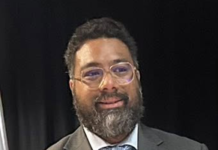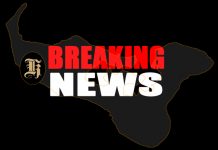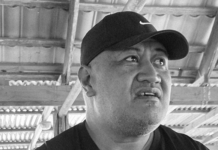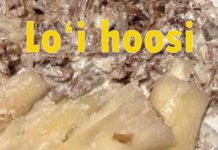The United States has proposed improvements for Tonga and 35 other countries to comply with the demands of the Trump Administration in order to avoid bans on their citizens’ entry into the U.S.
The update came before news that Senegal, a Western African nation listed alongside Tonga on the potential ban list, has been banned.
It was reported two days after a Trump Administration memo, which reportedly identified various benchmarks these countries did not meet.
The memo said these countries had “no competent or cooperative central government authority to produce reliable identity documents or other civil documents,” or they suffered from “widespread government fraud.” Others had large numbers of citizens who overstayed their visas in the United States.
The latest warning said failure to comply could result in Tongan nationals being barred from US travel until changes are made.
Tongan Prime Minister ‘Aisake Eke expressed deep concern over the threat, stating his government was “seriously alarmed” by the US stance.
He confirmed that the Crown Prince and his Ministry of Foreign Affairs are working with the US Embassy in Tonga to draft a formal response, with updates expected soon.
Tongan Passport Scheme
Tongan passports gained notoriety in the 1980s due to a controversial scheme to sell them illegally in Asia for revenue.
The scandal led to a constitutional amendment legalising the sale of the passports to 426 Chinese nationals.
Although authorities declared an end to passport sales after the unexpected 1991 constitutional change, Kaniva News uncovered cases in the 2010s proving the trade persisted, with Asians among the buyers.
Activists, including the late ‘Akilisi Pōhiva, alleged that Tongan blank passports and immigration stamps were being fraudulently obtained and exploited by some foreign intermediaries.
Despite King Tupou IV announcing that US$26 million had been collected from the scheme, the money was completely lost in the U.S. after the king appointed his court jester—an American entrepreneur—to invest it.
No official documents are available to record the details of the transaction, but critics, including Pohiva, speculated that far more than tens of thousands of passports had been sold.
The passport scandal became an international disgrace after it was revealed that international criminals exploited the national documents for global travel.
Imelda Marcos, wife of former Philippine dictator Ferdinand Marcos, got a Tongan passport. The former Hong Kong Stock Exchange chief, Ronald Li, serving a four-year jail term for bribery, and textile billionaire Chen Din-hwa were also reportedly among the now legal passport holders.
US Passport Concerns
US State Department spokeswoman Tammy Bruce declined to detail the specifics of the issues raised but emphasised that the administration expects nations to enhance their passport vetting systems.
“We’re looking at providing a period of time, (where if countries) don’t get to that point where we can trust them and they’ve got to change the system, update it, do whatever they need to do to convince us that we can trust the process and the information they have,” the Associated Press reported Bruce as saying.
In 2020, the U.S. Census Bureau reported 78,871 people of Tongan descent living in the United States. One of Tonga’s largest religious denominations, the Mormon Church (based in Utah), has a long historical connection with the United States and is affiliated with BYU-Hawaii.







